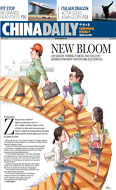Society
Sitting the SAT
Updated: 2011-04-07 08:06
By Guo Shuhan (China Daily)
|
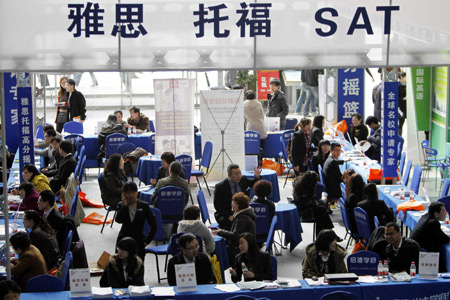 A recent international education exhibition held in Jinan, Shandong province, attracts more than 20,000 visitors, mostly children accompanied by their parents. Liang Zhijie / Asia News Photo |
 |
Not only have the number of mainland students taking the test for entry into US universities risen dramatically, the reasons for studying abroad have also changed. Guo Shuhan reports.
"Life is tough in the United States,"says Tang Qiwa of her past two semesters in the country. The freshman at Colgate University, a private liberal arts college in New York, says her poor English and cultural differences often made her feel "helpless" even though she worked as hard as she could.
Even so, the 19-year-old, like an increasing number of Chinese mainland students, thinks her undergraduate study experience in the US will not only improve her career prospects, but also improve her understanding of both Chinese and Western cultures.
More than 20,000 students from the mainland took the SAT Reasoning Test, a standardized college admissions exam in the US, in 2010, in Hong Kong, says Tony Chan, manager of the international and professional examinations division of the Hong Kong Examinations and Assessment Authority. There are no SAT test centers in the mainland.
Chan says the number of students has increased each year since 2007, when the exam center was first set up in Hong Kong. He says there was a near 50 percent increase for the first four exams of the 2010/11 session, starting in October 2010, compared with the number of students in the 2009/10 session.
Tang who studied at Beijing No 4 High School, one of the capital's leading high schools, says she found the workload difficult in the US.
"I have to read a lot to be able to write an essay nearly every week. The assignments force me to make the most of my available time, but at the same time the learning process is efficient from the point of view of absorbing knowledge and helps me think quickly and effectively."
The US educational model and resources are well regarded, says Li Nannan, manager of the SAT training course with one of the branches of Beijing's New Oriental School, and provides a better undergraduate education.
She says nearly 5,000 students took training courses in 2010 for the SAT test. Only about 200 students participated in the school's first training course in 2004. Since 2007, the number has increased by 20 percent annually.
More Chinese families can afford the expensive tuition fees of top private schools, says Li Jiayu, founder of USA Daxue website, which provides information on applications to US universities.
Li suggests, however, students and their parents should think clearly about whether the students applying are able to live independently and get over the difficulties of living in an unfamiliar country.
He cites a student from a wealthy family in Inner Mongolia autonomous region who dropped out after only one semester because she could not live on her own.
Zhang Mengxi, a second-year student at the high school affiliated to Renmin University, has other considerations in mind.
She thinks it could be difficult to adapt to the mainland's working environment after 10 years working on a doctorate in the US. Even so, she is still determined to study physics abroad. Her parents come from remote counties in Xinjiang Uygur autonomous region and Heilongjiang province, but their doctorates earned in the US helped them find good jobs and settle down in the capital, Zhang says.
She says her parents were good at academic work in the US but had difficulty fitting in culturally.
"They (my parents) still think in a Chinese way, maybe because their lab research involved few social interactions. But what I want to imbibe is the American way of thinking and I believe as an undergraduate this is the most suitable time to learn," Zhang says.
"The United States is today's scientific research center, so if I could learn how to solve a problem (the American) way, I can further my career."
Career prospects are not the only reason young Chinese want to study overseas.
Economics was Tang Qiwa's major in the first semester, as she was considering a career at an investment bank. However, she had second thoughts and decided to study history, Latin and Greek, as she felt she needed to make the most of her opportunity to learn more about Western culture.
"History is the most authentic mirror of human beings, and Latin and Greek are the best aids to explore the roots of Western culture," Tang says.
Li Jiayu, the website founder, says it used to be that nearly 75 percent of students who consulted with him majored in economics and finance, but their choices have broadened over the past two years.
The 49-year-old was an overseas student in the late 1980s. He says most of the mainland's overseas students his age or older were sponsored by the government. They studied technical and scientific subjects to serve China after they returned.
"But times have changed. This generation can focus on critical thinking, which is the essence of US education," Li says.
He says acquiring critical thinking skills is not a focus in mainland universities, and nor is it systematically inculcated in the US in graduate and doctorate studies. "It (mastering critical thinking) is the first step to a thorough understanding of Western culture. And youngsters who can grasp both the fundamentals of Chinese and Western culture are the country's hope in the future," Li says.
E-paper
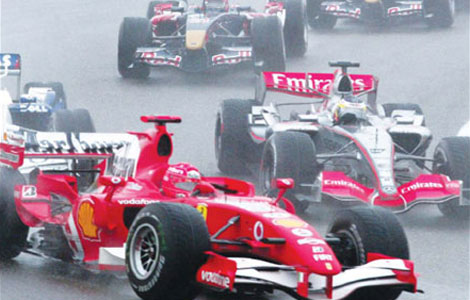
Green light
F1 sponsors expect lucrative returns from Shanghai pit stop
Buying into the romance
Born to fly
Light of hope
Specials

Share your China stories!
Foreign readers are invited to share your China stories.
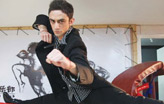
No more Mr. Bad Guy
Italian actor plans to smash ‘foreign devil’ myth and become the first white kungfu star made in China.
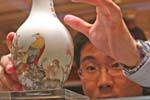
Art auctions
China accounted for 33% of global fine art sales.
